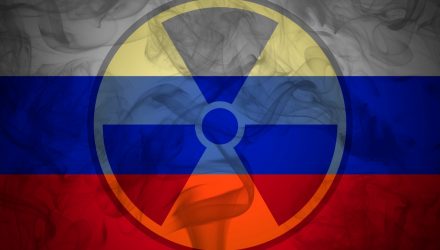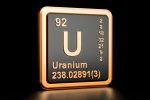The United States could slowly reduce its dependence on Russia for uranium. If other nations follow suit, the trend towards self-reliance could prop up more uranium mining opportunities around the globe.
Demand for uranium could push higher, especially if safety concerns are addressed. More and more nations are looking to uranium as a viable renewable energy source. However, there are geopolitical factors to consider, particularly for the U.S.
“For a long time, the U.S. has been heavily reliant on Russian uranium, and imported about 14 percent of its uranium and 28 percent of all enrichment services from Russia in 2021 while the figures for the European Union were 20 percent and 26 percent for imports and enrichment services, respectively,” an OilPrice.com article said. “And, there seems to be no end in sight despite Ukrainian President Volodymyr Zelenskiy calling on the U.S. and the international community to ban Russian uranium imports following the Russian shelling near Ukraine’s Zaporizhzhya power plant.”
The U.S. government is under pressure to wean itself from dependence on Russia for the renewable energy source. As such, future government subsidies could help prop up domestic mining efforts.
“Concerns about the security of supply were further enflamed by intensifying Western government actions to pivot away from Russia’s nuclear fuel supply services,” wrote Sprott ETF product manager Jacob White in a Sprott Uranium Report.
Capitalizing on U.S. Uranium Mining
When it comes to U.S. uranium mining, one fund to consider is the Sprott Uranium Miners ETF (URNM), which includes an allocation to U.S. companies (6.5% as of May 31). Leaning more heavily on itself, U.S. mining and potentially other countries could present growth opportunities for investors via URNM.
The fund tracks the North Shore Global Uranium Mining Index. It invests in global firms that mine, develop, and produce uranium as well as those firms that hold physical uranium or uranium royalties. Selected firms must devote at least 50% of assets to business operations tied to uranium.
As briefly mentioned, various holdings are allocated into different countries, further lending themselves to the diversification of the fund. Canadian mining companies comprise over 50% of the fund, but it also includes holdings in other countries such as Hong Kong, the United Kingdom, Kazakhstan, and Australia.
For more news, information, and analysis, visit the Gold/Silver/Critical Minerals Channel.








